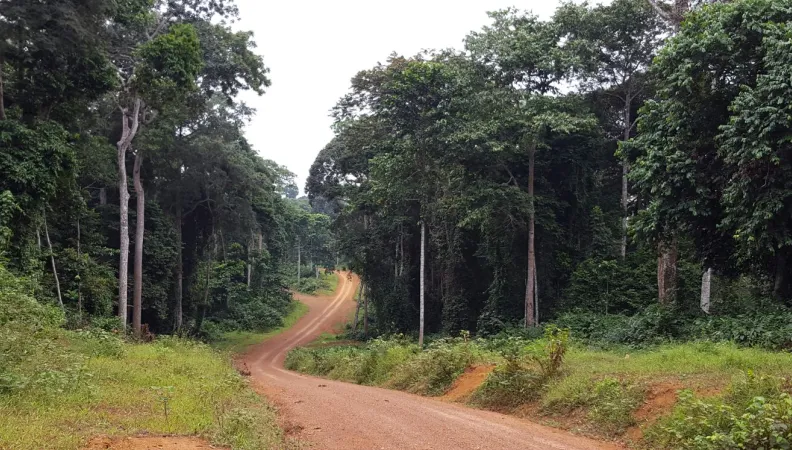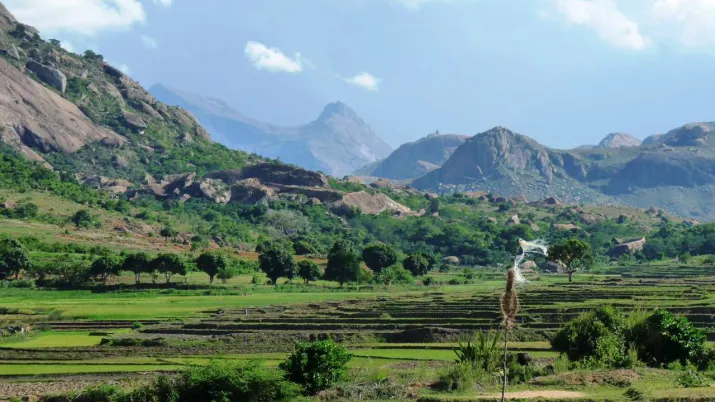Share the page
Claude Garcia: “How to use a game to fight deforestation”
Published on

This summer has seen forest fires proliferate across California and Siberia. In the Amazon basin, where conditions are aggravated by climate change, clearance for agriculture is the primary cause. Some five million hectares of forest disappear every year, mainly from Africa and Latin America. Tropical forests, which are particularly badly affected, also store the greatest amount of carbon and have the richest biodiversity. With this in mind, Claude Garcia, a researcher at CIRAD and ETH Zurich, and his international team are calling for a new international policy approach to the fight against deforestation, based on collective intelligence and gaming. With financial support from FFEM, he has developed a game to facilitate negotiations on the management of intact Congo basin forests.
In your opinion, why are current international policies for fighting deforestation so ineffective?
Claude Garcia: Deforestation is a human activity. We are living in the Anthropocene age: landscapes are fashioned by human choices. They result from the sum of individual actions by the people who live there. International policies for fighting deforestation are doomed to failure when they are based on a false and simplistic representation of human decision-making. To halt deforestation we need better understanding of decision-making processes, and new mechanisms for making those decisions. That is where gaming and collective intelligence come in.
By explicitly representing the human decision-making process, a game helps us to better understand it. First, the game overcomes the problem of drowning in complexity by providing an informed synthesis of reality, based on the work of experts and local knowledge. Players directly observe the consequences of their decisions, and become responsible for their actions. By playing the game several times, they can envisage different potential futures. The challenge is to render explicit the hypotheses used in decision-making. Once visible, these hypotheses can form the subject of democratic debate. Players no longer talk about what needs to be done, but about what can be done and how to achieve it. The game helps us understand how the involved parties make their decisions: the constraints they face, their needs and aspirations. The parties can identify each other’s individual interests and work together to deliver on them all.
How is it innovative to use games to bring out new solutions?
Our approach goes against the normal processes of negotiation. Our research has concluded that it’s useless to try and get actors to agree on a common objective or shared vision set out in advance, since such agreements are either impossible to reach, or are “empty”.
Plus, negotiations bring different actors with their different agendas head-to-head. But who’s willing to compromise on values? They’re at the heart of who we are. But in a game, that problem is removed. You’re no longer negotiating about the world you want, but about what’s available. In this way, participants understand the issues faced by other players. This reciprocal understanding is core. A common vision finally comes together, but only at the end of the process. It emerges naturally, rather than being something imposed or sought from the outset. It’s a question of building solutions together, rather than aiming for individual goals and concessions.
This method takes time. In 2017, with financial support from FFEM, as part of the CoForSet project conducted jointly with the Foundation for Biodiversity Research (FRB - Fondation pour la Recherche sur la biodiversité) we designed a game to facilitate negotiations around the management of intact Congo basin forests, which had been stalled for two years. After two years of design and three days of negotiations, the game enabled government representatives, local populations, indigenous peoples, companies and NGOs to understand one another and reach agreement. It was the first application of a game in a regional negotiation forum involving major environmental issues.
How do you intend to roll out this model? Can it be replicated in other contexts, other forms of negotiation?
It’s important to understand that games are not THE solution, but by thinking collectively about problems starting from a tangible basis, blockages can be overcome. Games are a tool for dialogue, a way to apply collective intelligence and find solutions.
In reality, every situation needs its own game. Following the Congo basin forest management, in partnership with the Swiss Federal Institute of Technology in Zurich, CIFOR and WWF, we designed games for the palm oil industry in Cameroon, Colombia and Indonesia as part of a project financed by the Swiss National Research Fund. These games, developed with small producers and industry, were then played by farmers and industry but also by journalists, civil servants, and most interestingly by ambassadors and former ministers. In these three countries, the discussions that followed led to changes in national regulations. New contracts were signed between industrialists and small producers, using the solutions devised during the gaming sessions. The most surprising thing is perhaps that, when we introduced these games to the same types of stakeholders in Honduras, Mexico and Uganda, the stakeholders recognised their own issues even though the games had been developed in a different geographical context. We’re now being asked to develop specific games in Uganda, Côte d’Ivoire and India - including for different industries, such as cocoa.
In our societies, the idea of games is rather taboo - they’re not taken seriously. Games are effective only if they are endorsed by the decision-makers. Only they are really able to change things.
When this way of using our collective intelligence is more widely practised and recognised, I’m sure it will be helpful in even the most complex negotiations and at the highest-level environmental summits, such as the climate and biodiversity COPs. Collectively developing solutions will then become a new way of doing politics.
Further reading
Feedback from the “Biodiversity modelling and scenarios” programme
Results from the “Biodiversity modelling and scenarios” programme, set up by the French Foundation for Biodiversity Research (FRB) and backed by the FFEM, were shared during a feedback session held on...
Published on february 8 2021

